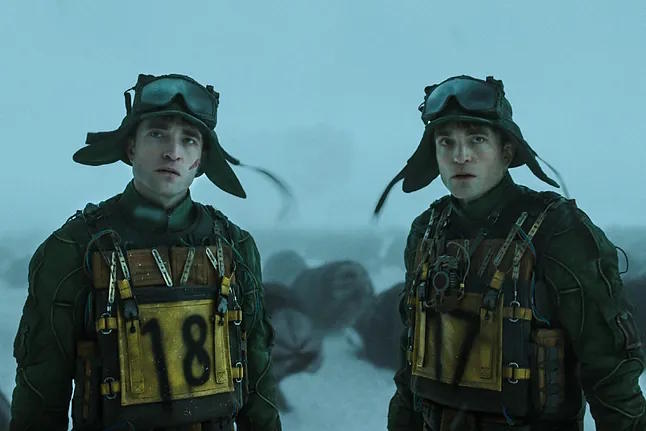George Lakoff argued that trying to obey the order not to think about an elephant was impossible because the simple command creates a frame of long trunks, disproportionate ears, and very heavy legs from which there is no way out. The animals that populate Berlin in the form of colorful sculptures are not elephants, they are bears, but the rule works the same. "Try not to think about politics" (this is the true Berlin bear) was probably the advice (or even warning) that Tricia Tuttle, the new director of the Berlinale received after previously serving as the head of festivals at the British Film Institute when she was tasked with turning the current 75th edition into a cinematic event far from political turmoil. But of course, the warning (or order) aims to have an effect on a festival whose end coincides with the German elections and with the highly likely and elephantine rise, according to both polls and demonstrations against the polls, of the far right. All this while the echo of what happened at the 2024 closing ceremony where the directors of the superb documentary No other land, Basel Adra and Yuval Abraham, were accused of being antisemitic for speaking out against the Israeli genocide and apartheid when receiving their award. The accusation came from the Israeli government and prominent German politicians, some directly linked to the sponsors funding the event. And now, try not to think about a bear, that is, about politics.
Tuttle tries. For the past few days, film magazines have been striving to reproduce her statements about the importance of freedom of expression in the frame -- once again -- of the festival ("We want to create a platform where people can express different points of view, even opposing views"), about the clarity of German legislation in this regard ("Displaying symbols of national or political expression or solidarity is not prohibited and is fully covered by the laws"), and about how tired she is of talking about politics and not about cinema. The bears, indeed, devour everything.
But beyond the bears that make up the frame, there is the forest. And there are some of the films that aspire to mark the upcoming year. First and foremost, there is the highly anticipated Mickey 17, the film by Bong Joon-ho starring Robert Pattinson following the worldwide success of Parasite. For now, it is known to be a science fiction adventure based on the book by Edward Ashton that will bring us back, both in intention and form, to the allegorical universe of the previous film Okja. It is known that it is a production that has suffered many more delays, discussions, and rumors than desirable. The director has already rushed to say that it is all just rumors and that the final cut of what was filmed is his and his alone, not Warner's. We will see.
The European premiere of James Mangold and his Bob Dylan thanks to Timothée Chalamet (A Complete Unknown), the latest animated delirium for his daughter by Michel Gondry (Maya, give me a title), or the always profound character analysis by Ira Sachs (Peter Hujar's Day) would accompany everything mentioned above in the effort to restore the Berlinale to its glory, to what it should never have ceased to be. We will see.
However, Spain this year, beyond being the "in focus" country and contrary to what has been customary in past editions -- those of Alcarràs and 20,000 species of bees--, barely showcases a feature film in the Panorama section. Sorda, by Eva Libertad, stands alone in the detailed description of the drama of motherhood and fears with actress Miriam Garlo as a great and resounding revelation.
But as the frame and the bear are still there, the Berlinale returns to its roots with every step it takes. Whether Tricia Tuttle likes it or not. One of the most anticipated documentaries goes by the name of A Letter to David where Israeli director Tom Shoval tells the story of his friend and collaborator David Cunio, kidnapped on October 7, 2023. And not far away, on the occasion of the 80th anniversary of the liberation of Auschwitz, the special program includes the screening of the monumental Shoah (1985), by Claude Lanzmann, as well as a new documentary that revisits the work he created from absolute nothingness, from perfect horror, the representation of the Holocaust in cinema. The film is titled Je n'avais que le néant (All I had was nothing) and is signed by Guillaume Ribot. There are more animals, but none like the bear with elephant manners in Berlin.
